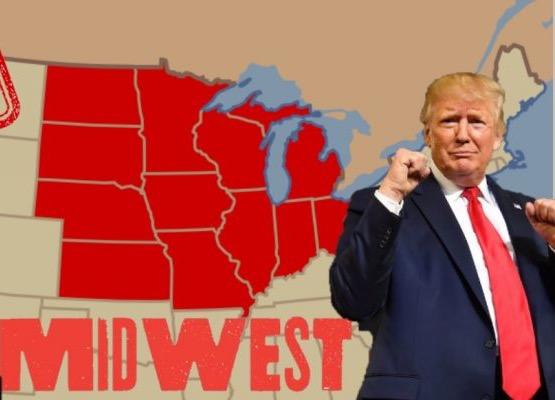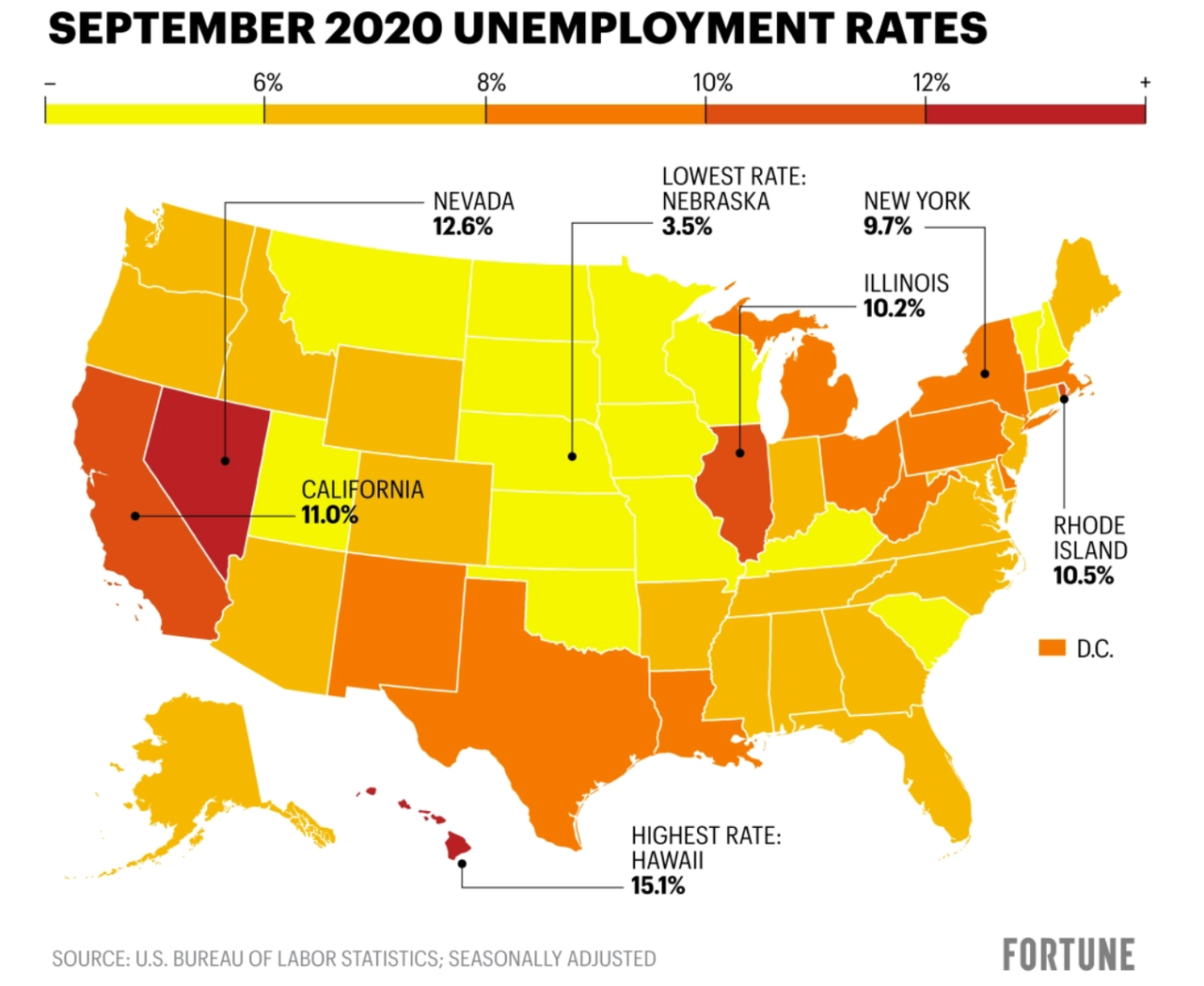Midwestern States Thrive With Fewer Virus Rules As Second Wave Arrives
Tyler Durden
Wed, 11/04/2020 – 21:40
The debate between opening and closing the economy has been heated between Democrats and Republicans. President Trump has said if a second virus wave strikes, he will not close the economy. On the other hand, Democratic presidential nominee Joe Biden said he would close the economy to mitigate the virus spread.
While the debate to close or leave open the economy rages on between both political parties as record daily caseloads have been seen in the last few days, we shed light on a handful of Republican Midwestern states that have defied implementation of strict coronavirus restrictions, allowing their respective economies to thwart complete economic devastation.
Many of these states, run by Republican governors, have practically no restrictions to mitigate the spread of COVID-19. Still, the strategy, so far, has paid off with fewer business closures and more hiring shown in the latest unemployment figures, according to AP News.
“For now, though, those Midwestern states have a lock atop the unemployment rankings, far below the national average rate for September of 7.9%. Nebraska leads the nation with a 3.5% unemployment rate, followed by South Dakota, Vermont, North Dakota, Iowa, and Missouri,” AP said.
However, there’s a tradeoff between keeping the economy open, and limited coronavirus restrictions appear to be running into significant issues. These states are now recording some of the highest surges in new virus cases in the country.
Take, for example, North Dakota and South Dakota, are conservative states, have had a Laissez-faire approach to mitigate the virus spread, both are now exhibiting the most cases per capita in the U.S., along with Nebraska and Iowa.
Despite surging cases in Midwestern states, their economies have recovered much quicker than New York or major cities in California, which are liberal-run and continue to enforce some of the strictest social distancing rules, crushing SMEs.
Midwestern governors were some of the first to ease lockdowns in late spring, supporting SMEs:
“I’ve got to believe that if you shut down harder, you’re going to see a more severe impact to your industries and the longer you’re shut down, the harder it’s going to be for those industries to rebound,” Nebraska Gov. Pete Ricketts said.
Missouri Gov. Mike Parson, who contracted the virus last month, has promoted the idea of balancing the virus and keeping the economy open. And Iowa Gov. Kim Reynolds has repeatedly told residents not to let the virus dominate their lives.
South Dakota Gov. Kristi Noem has said,” there are consequences to what we’ve seen happen in other states — that shutting down businesses, stopping people’s way of life has some devastating impacts. We’re taking a very balanced approach.”
Unlike California and New York, Midwestern states are not densely populated and have mostly agriculture and industrial economies, not ones dominated by travel and tourism.
“The economy of a rural state has a different structure, so more of the people work in industries that wouldn’t really be disrupted by a need for social distancing like agriculture,” said Eric Thompson, who leads the Bureau of Business Research at the University of Nebraska-Lincoln.
Nathan Kauffman, Omaha branch executive of the Federal Reserve Bank of Kansas City, said business closures in Midwestern states were not as severe as others because they’re are considered essential industries.
Nebraska’s heavily centric agriculture and food processing economy played a major role in boosting the state’s economic rebound, said Ricketts.
“The kinds of things that we’re strong in are agriculture, manufacturing, finance and technology. You’ve just got industries that are not going to be as impacted by a pandemic,” Ricketts said.
AP notes, “despite the low unemployment figures, all of the states now have fewer jobs than before the pandemic hit… Still, many Midwestern business owners and leaders say they appreciate their governors’ lighter touch.”
Arik Spencer, president and CEO of the North Dakota Chamber of Commerce, said shutting down large swaths of the economy is not the best strategy for states. He added, every state is undergoing a tricky balancing act of managing its economy and mitigating the spread of the virus.
“We hope that with the thoughtful approach of decisionmakers here in North Dakota, we’re poised to recover quickly. But if there were a silver bullet for recovery, every state in the country would be utilizing that right now,” Spencer said.
As for the U.S., a new wave of restrictions could be nearing as daily virus cases hit record highs. Liberal-run states could be some of the first to reimpose new restrictions, likely triggering a double-dip recession as it appears President Trump’s stimulus might not arrive until early 2021.
Midwestern states might get the last laugh as their agriculture and industrial based economies are situated in less populated areas, opposed to many Democratic states with sprawling metropolises that are already reimposing restrictions.
via ZeroHedge News https://ift.tt/32gFItb Tyler Durden

